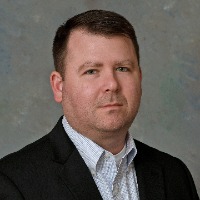Automation and digitalization offer a path to greater scalability, consistency, and efficiency for autologous CAR T therapies – but their adoption must be carefully phased and aligned with broader operational goals.
This October, join our panel discussion featuring experts in cell therapy manufacturing, automation and digital systems, process development, and workforce training, as they explore the evolving landscape of automation in autologous CAR T manufacturing. You will learn about key considerations for success, including:
• Strategic timing: identifying the right stage to introduce automation
• Technology transfer: ensuring robust, reproducible processes across sites and partners
• Operator training and change management: equipping teams for digital and automated workflows
• Digital infrastructure: implementing electronic SOPs, batch records, and integrated data systems
• Phased automation: transitioning from manual to semi-automated and eventually highly automated systems, with a long-term view toward minimizing manual interventions
• Regulatory and quality considerations: maintaining compliance and control throughout the transition
Attendees will leave with:
• A clearer understanding of when and how to introduce automation to maximize impact, including a phased roadmap for introducing automation
• Practical insights into reducing manual variability and improving process consistency through targeted automation, and how to select automation technologies that align with process maturity and operational goals
• Key lessons learned – and pitfalls to avoid – from industry experts, covering important topics such as operational transitions, and preparing teams for automated workflows

Matthew Hewitt
Vice President, CTO Manufacturing Division at Charles River Laboratories
Matthew Hewitt, B.A. Ph.D., currently serves as Vice President, CTO Manufacturing Business Division at Charles River Laboratories (CRL) playing a critical role in driving CGT strategic vision as well as leading multiple operational initiatives across CRL’s CGT CDMO, Biologics Testing, and Microbial Solutions global network.
Before joining CRL, he was Head of R&D and Clinical Development for Lonza’s Personalized Medicine Business Unit leading Cocoon platform development, a closed, automated, scalable cell therapy manufacturing solution. In addition, he executed numerous collaborations across academia and industry leveraging the Cocoon.
Prior to Lonza, Matt led the Tumor Immunology and Microenvironment program at Bellicum Pharmaceuticals, focusing on improving cell therapy efficacy in solid tumors. He also led the Immunology group at the University of Pennsylvania’s Gene Therapy Program, leading and contributing to numerous AAV gene therapy programs.
Matt received his B.A. in Molecular Biology at Goucher College while playing Men’s Lacrosse, PhD in Biophysics and Physiology from the University of Alabama at Birmingham, and completed his postdoctoral fellowship at Johns Hopkins University within the Asthma and Allergy Division.
Mojtaba Parvizi
Global FastTrak Director - Cell Therapy at Cytiva
Dr. Mojtaba Parvizi is a scientific leader in cell and gene therapy, immuno-oncology, and translational medicine. At Cytiva, he directs the Global FastTrak Cell Therapy program, where he works with biotech and pharmaceutical partners worldwide to accelerate the development and commercialization of CAR-T and other engineered immune cell therapies. He leads global efforts to connect translational science with operational excellence, advancing scalable and automated solutions that strengthen cell therapy manufacturing. Passionate about bridging innovation with strategy, he is dedicated to improving efficiency, reproducibility, and patient access to next-generation therapies.
Edwin Stone
CEO at Cellular Origins
Edwin has spent over 20 years bringing new life science technologies to market, the last 10 of these focused on solving the challenges of cell therapy manufacturing. He established TTP’s cell and gene team which developed over 10 cell therapy automation systems, including systems that are now in routine use for commercial therapy manufacture. Seeing the challenge of scale remained unaddressed, Edwin co-founded Cellular Origins where he is passionate about enabling patient access to cell therapies through scalable, cost-effective and space efficient manufacturing enabled by the Constellation™ automated cell therapy manufacturing platform. He holds a Master’s degree in Engineering and a PhD in robotic vehicles from the University of Cambridge.








